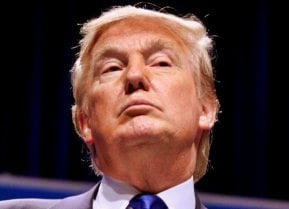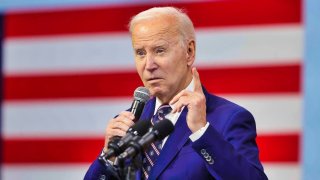Was the Prisoner Swap with Russia a Bad Idea?
Is the prisoner exchange with Russian President Vladimir Putin a pact with the devil in the name of humanity? That is what one leading German commentator is calling it.
Is the prisoner exchange with Russian President Vladimir Putin a pact with the devil in the name of humanity? That is what one leading German commentator is calling it. In Germany as well as Poland, the prisoner swap is triggering unease as it is viewed as a form of appeasement to the Russian regime that will simply provoke further hostage-taking. The principal object for Putin was to obtain the release of one Vadim Krasikov, who was convicted of murder in Berlin, who never acknowledged his culpability, and who the Kremlin has now confirmed was a member of the FSB’s elite Alpha unit.
Germany undertook the release only in response to pressure from the Biden administration, reckoning that smooth trans-Atlantic ties had to be maintained rather than stiffing America. “Nobody took lightly this decision to deport a murderer sentence to life imprisonment after only a few years,” German Chancellor Olaf Scholz announced. Justice Minister Markus Buschmann said it was a “bitter decision.”
For Biden and vice-president Kamala Harris, however, it represented a triumph. Donald J. Trump had announced that he, and he alone, could procure the release of the imprisoned Wall Street Journal Evan Gershkovich. Instead, it was Biden who accomplished the task. Irked at being overshadowed, Trump released an atrabilious message claiming that Biden had paid Russia cash for the release of the hostages while expressing no pleasure at their release. On Friday, he tempered his language slightly, observing that “It would have never happened with us if I was president,” he claimed about the original detention of Gershkovich. He added, “The Russians made a great deal. I’m not going to be criticizing it because it’s good to have them home, but they got a phenomenal deal. And that sets a very bad precedent. Very, very bad precedent.”
There can be no doubt that, as Christian Caryl has observed in the Washington Post, Putin will seize upon the exchange to establish a kind of moral equivalence between East and West. The deal will help to fortify Putin’s rule as he demonstrates that he can force the West to deal with his regime, whether it likes it or not. It is also the case that, as Caryl observes, “Putting Russia and its opponents on the same moral level implicitly undermines the legitimacy of Putin’s critics. When it comes to espionage and subversion, after all, both sides are equally culpable, right?” This is why it is important to remember that individuals who were freed as part of the deal, such as Vladimir Kara-Murza, are not traitors or criminals but heroic dissenters from the authoritarian regime that has ensconced itself in Moscow, carrying out a criminal war against Ukraine and a campaign of active subversion in western Europe.
As uneasy as the deal may make some in the West, the cold dictates of realpolitik demanded that a moral stand had to be taken. Washington could not simply abandon innocent citizens who had been seized as pawns on a larger global chessboard. For Biden, as much as for Putin, the prisoner exchange is a personal victory but not one that will alter the nature of relations between the two sides.
The clash with Russia will continue. It may even intensify in coming years as positions harden in Moscow and Western capitals. This deal, as Melinda Haring cogently noted in USA Today, represented “nothing more than a temporary moment of convenience when Putin and Biden’s narrow political interests overlapped. There will be no thaw or reset in the final days of Biden’s term.” Quite the contrary.
About the Author:
Jacob Heilbrunn is editor of The National Interest and is a nonresident senior fellow at the Atlantic Council’s Eurasia Center. He has written on both foreign and domestic issues for numerous publications, including The New York Times, The Washington Post, The Wall Street Journal, Financial Times, Foreign Affairs, Reuters, Washington Monthly, and The Weekly Standard. He has also written for German publications such as Cicero, Frankfurter Allgemeine Zeitung, and Der Tagesspiegel. In 2008, his book They Knew They Were Right: the Rise of the Neocons was published by Doubleday. It was named one of the one hundred notable books of the year by The New York Times. He is the author of America Last: The Right’s Century-Long Romance with Foreign Dictators.
Image Credit: Shutterstock.


